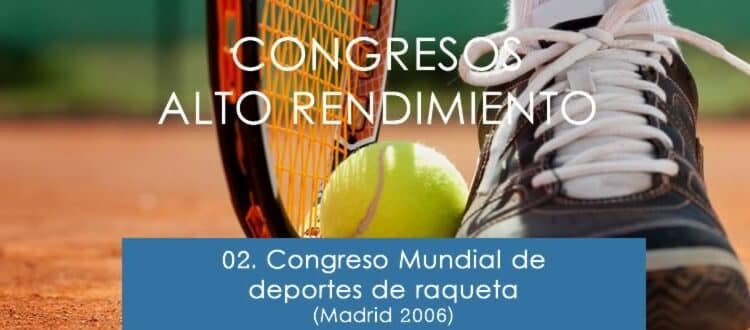Nutrition knowledge and nutrition habits of tennis coaches
Resumen
The nutrition of athletes has been of interest to scientists for decades and since the origins of sports competitions the questions about what to eat and what to drink in order to improve performance have been raised. Today there are scientific proofs that the adequate dietary habits influence in a large extent to an athlete’s health, body composition, and energetic pathways during the activity as well as during the competition or recovery (1,3,4,23,24,25). Athletes should be well informed about the food groups, caloric intake, and daily meal schedule. As the previous investigations showed, the athletes obtain most of their knowledge about nutrition from their coaches, especially physical conditioning coaches (2,5,6). The major aim of this study would be determination of the level of knowledge about nutrition and dietary habits, especially healthy way of eating in tennis coaches. Also the aim is to establish the relations between knowledge about nutrition and dietary habits
1. INTRODUCTION
The nutrition of athletes has been of interest to scientists for decades and since the origins of sports competitions the questions about what to eat and what to drink in order to improve performance have been raised. Today there are scientific proofs that the adequate dietary habits influence in a large extent to an athlete’s health, body composition, and energetic pathways during the activity as well as during the competition or recovery (1,3,4,23,24,25). Athletes should be well informed about the food groups, caloric intake, and daily meal schedule. As the previous investigations showed, the athletes obtain most of their knowledge about nutrition from their coaches, especially physical conditioning coaches (2,5,6). The major aim of this study would be determination of the level of knowledge about nutrition and dietary habits, especially healthy way of eating in tennis coaches. Also the aim is to establish the relations between knowledge about nutrition and dietary habits.
METHODE
The sample consisted of 49 tennis coaches from Croatia. The knowledge about the sports nutrition and their dietary habits were tested by means of questionnaires. The questionnaires were constructed based on the results of previous studies conducted at the Faculty of Kinesiology (15) and the results from international studies (6,18). The questionnaire that provided information about knowledge in sports nutrition consisted of items determining the general knowledge about nutrition, nutritional ingredients needed for providing adequate energy level in sports, items about supplements, meal schedule before training and competition and recovery, and of items testing the knowledge about importance of liquids, dehydration and rehydration during and after training and competition. Dietary habits of the subjects were determined by items regarding the number of meals per day, skipping the meals, intake of particular food subgroups based on the food pyramid, liquid intake and vitamin and mineral supplements intake, specially those used usually in sports. Surveys were anonymous and the data obtained were analysed by statistical software STATISTICA for WINDOWS. The correlations between nutritional knowledge and dietary habits were tested by Pearson correlation coefficient.
RESULTS AND DISCUSSION
The questionnaire and the number of correct and incorrect answers are presented in Table 1. According to the results obtained it can be concluded that the level of knowledge about nutrition is not satisfactory. From the total of 1078 correct answers tennis coaches obtained 814 or 75.5% with the range of only 5 to 49 correct answers. There were 7 statements on which the whole sample gave correct answer.
Table 1. Questionnaire with the marked true (T) or false (F) answers and the number of correct and incorrect answers.
The closer look at different statements in the questionnaire is even more unsatisfactory. There is many paucity in coaches’ knowledge. This can probably be connected with the fact that no single coach attended some of the nutrition courses and that the sources of information for nutritional facts that they use are not always scientifically justified. Most of their knowledge comes from different popular magazines. Although in recent years there is a significant growth in the literature relating to different aspects of sports nutrition it seems that tennis coaches are not interested in it. It seems that proteins are the nutrient about which tennis coaches have the least knowledge. This is in accordance with the previous investigation conducted on Croatian basketball and alpine skiing coaches (15). Almost half of them take proteins for main energent and think that athletes, compared to sedentary people, need as much as triple higher amounts of this nutrient. But, regardless of that they know very little of protein metabolism. Knowing that amino acids are among the most used supplements (10,13), frequently after the recommendation of their coaches, it would be aspected that persons who are counseling this supplementation know about the possible problems or side effects that could endanger the health of tennis players. Vitamins and minerals are also frequently used as supplements (5). The statements on these nutrients had just few incorrect answers. But, it is surprising that 40% of coaches consider vitamins and minerals as sources of energy. Talking about the supplementation 40% of tennis coaches think that there is no success in sport without dietary supplements. There are very few false answers about the weight loss. This is a bit surprising because tennis is not a kind of sport where players, that means also coaches, have many problems with keeping their weight in certain limits like in some other sports, like gymnastics or wrestling (1). Probably this is a consequnce of fact that the problem of body mass is so much present in everyday life and it is not only the question of sport nutrition but is connected with the quality of life. The coaches showed that they know how to deal with the meal schedule considering training/competitions. But, cognition about recovery and rehydration is not so good. Recovery is a very complex process in which nutrition and rehydration have very important role. It is necessary to restore glycogen depots in muscles and in liver, replenish water and minerals lost by sweating, synthesize proteins. It is recommended to consume a carbohydrate-rich meal as soon as possible after exercise, providing at least 1 gram of carbohydrate per kilogram of athletes’ body weight (7, 8, 9). It is well known fact that tennis players should consume fluid at every opportunity they have, but recovery is a period to replenish the loss of water and electrolyte (16) and try not to overconsumpt the fluids (17). At this stage it is very important to take into consideration that thirst is not a good measure of dehydration and, unfortunately, almost half of the coaches are not familiar with this. The dietary habits questionnaire consisted of 18 questions (18). These questions included food intake, dieting, skipping the meals, consumption of different beverages, and vitamin and mineral supplementation. Answers ranged from always (4) to never (1) and the possible range for scores was from 18 to 72. Coaches had 48.6 points on the average. It seems that coaches, like athletes, have very busy schedule so they are skipping some meals in their daily routine, but breakfast is not the usually skipped one. Coaches are rarely dieting and they do not seek for much nutrition information nor are recording what they eat. Positive relationship was found between dietary habits and nutritional knowledge. Coaches who had better understanding of nutrition had also better nutrition habits. This fact was also established in some previous investigation (15,18)
CONCLUSION
At the end it could be concluded that despite relatively good nutrition knowledge there are some incompleteness about very important nutrition facts. This is the reason why sport nutricionists should be included in coaching teams. He would be the one to help in education of coaches, athletes and parents, to diagnose dietary habits and to suggest necessary changes, all for the purpose of better sport results and to preserve health (12). Good level of knowledge potentially could indicate good dietary habits.
Bibliografía
- 1. American Dietetic Association. Position of the American Dietetic Association, Dietitians of Canada, and the American College of Sports Medicine: Nutrition and athletic performance. Journal of the American Dietetic Association 2000; 100:1543-56.
- 2. Angel, J.B., Gillespie, C. Nutritional knowledge of athletic trainers. ASAHPERD Journal 1990; 13(1): 18-20.
- 3. Barr, S.I. Effects of dehydration on exercise performance. Can J Appl Physiol 1999; 24: 164-72.
- 4. Benardot, D. «Nutrition For Serious Athletes: An Advanced Guide to Foods, Fluids, and Supplements for Training and Performance.» Champaign Ill: Human Kinetics, 2000.
- 5. Burns, R.D., Schiller, R., Merrick, M.A., Wolf, K.N. Intercollegiate student athlete use of nutritional supplements and the role of athletic trainers and dietitians in nutrition counseling. Journal of the American Dietetic Association 2004;104: 246-9.
- 6. Conkle, T.H., Tishler, A.G. Sports nutrition knowledge assessment of physical educators and coaches. Annual meeting of the Mid-South Educational Research Association, November 11-13, 1992; Knoxville, Tennessee.
- 7. Inge, K. Nutrition: The competitive edge. In: Crespo M, Pluim B, Reid M. (eds) Tennis medicine for tennis coaches. ITF Ltd, 2001. (p: 111-2).
- 8. Ivy, J.L., Katz, A.L., Cutler, C.L., Sherman, W.M., Coyle, E.F. Muscle glycogen resynthesis after exercise: effect of time of carbohydrate ingestion. J Appl Physiol 1988; 64: 1480-85.
- 9. Jentjens, R., Jeukendrup, A.E. Determinants of post-exercise glycogen synthesis during short-term recovery. Sports Med 2003; 33(2): 117-44.
- 10. Juhn, M.S. Popular sports supplements and ergogenic aids. Sports Med 2003; 33(12): 921-39.
- 11. Kundrat, S. Foods and fluids for team sports. Gatorade Sports Science Institute, 2002.
- 12. Lacey, K., Pritchett, E. Nutrition Care Process and Model: ADA adopts road map to quality care and outcomes management. Journal of the American Dietetic Association 2003; 103:1061-72.
- 13. Lombardo, J.A. Supplements and athletes. Southern Medical Journal 2004; 97(9): 877 –9.
- 14. Manore, M,, Thompson, J. Sport Nutrition for Health and Performance. Champaign, IL: Human Kinetics, 2000.
- 15. Matkovi?, B., Knjaz, D., Cigrovski, V. Znanje trenera o sportskoj prehrani. HŠMV 2006; 21(1):3-8.
- 16. Maughan, R.J., Leiper, J.B., Shirreffs, S.M. Rehydation and rcovery after exercise. Sport Science Exchange 1996; 9(3): 1-5.
- 17. Noakes, T.D. Overconsumption of fluids by athletes. BMJ 2003; 327:113-4.
- 18. Paugh, S.L. Dietary habits and nutritional knowledge of college athletes. Thesis. California University of Pennsylvania, 2005.
- 19. Ray, T.R., Fowler, R. Current issues in sports nutrition in athletes. Southern Medical Journal 2004; 97(9): 863-6.
- 20. Shirreffs, S.M., Taylor, A.J., Leiper, J.B., Maughan, R.J. Postexercise rehydration in man: effects of volume consumed and drink sodium content. Med Sci Sports Exerc 1996; 28: 1260-71.
- 21. van der Beek, E.J. Vitamin supplementation and physical exercise performance. In: Williams, C., L.T. Devlin (ur). Foods, nutriton and sport performance. London: E. And F.N. Spon, 1992.
- 22. Welsh, R.S., Davis, J.M., Burke, J.R., Williams, H.G. Carbohydrates and physical/mental performance during intermittent exercise to fatigue. Med Sci Sports Exerc 2002; 34: 723-31.
- 23. Wilmore, J.H., Costill, D.L. Physiology of Sport and Exercise. Champaign, IL: Human Kinetics, 2004.
- 24. www.ais.org.au/nutrition 2.11.2005.
- 25. www.hsph.harvard.edu/nutritionsource/vitamins.html (8of12)6/6/2005.







